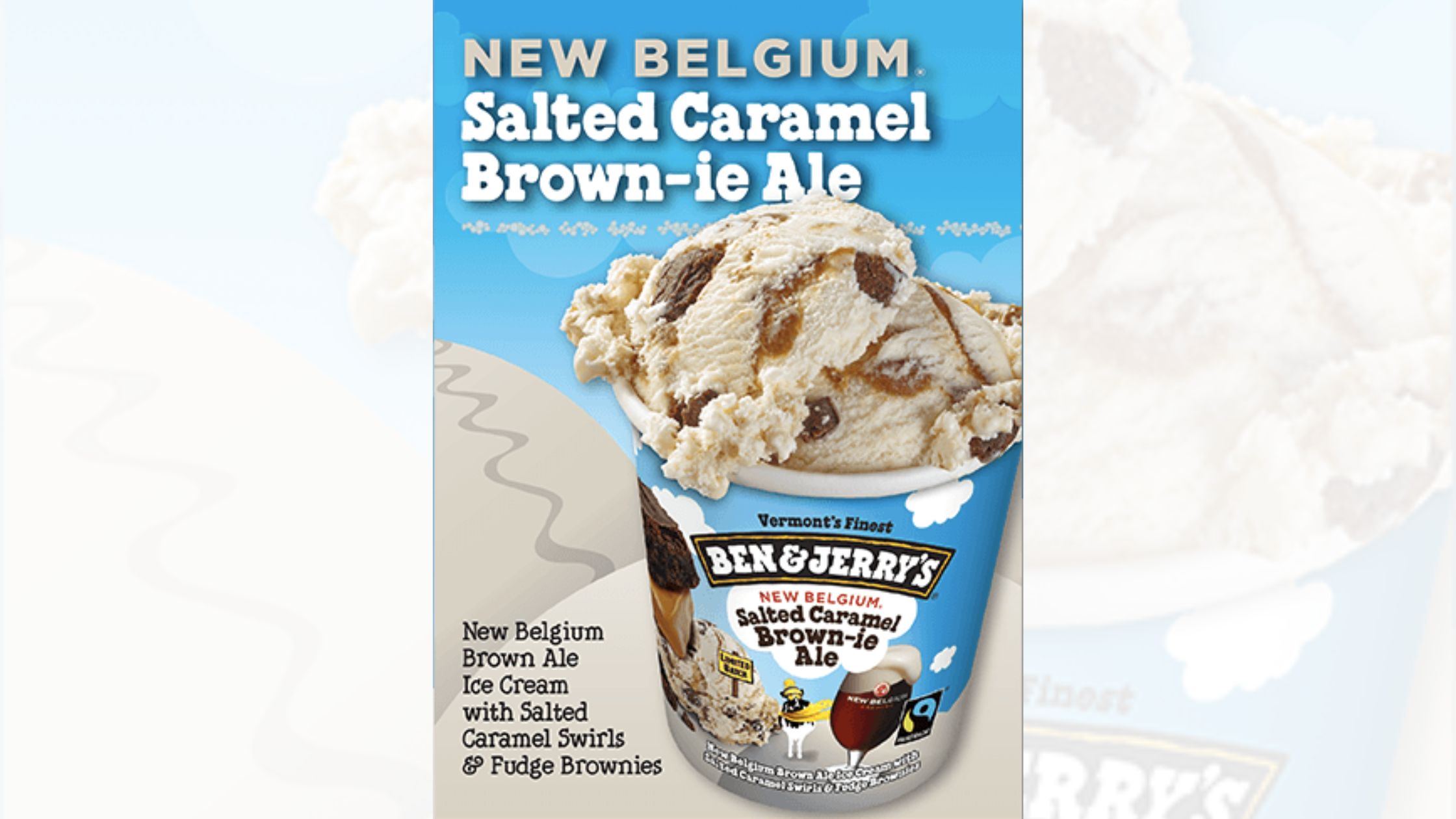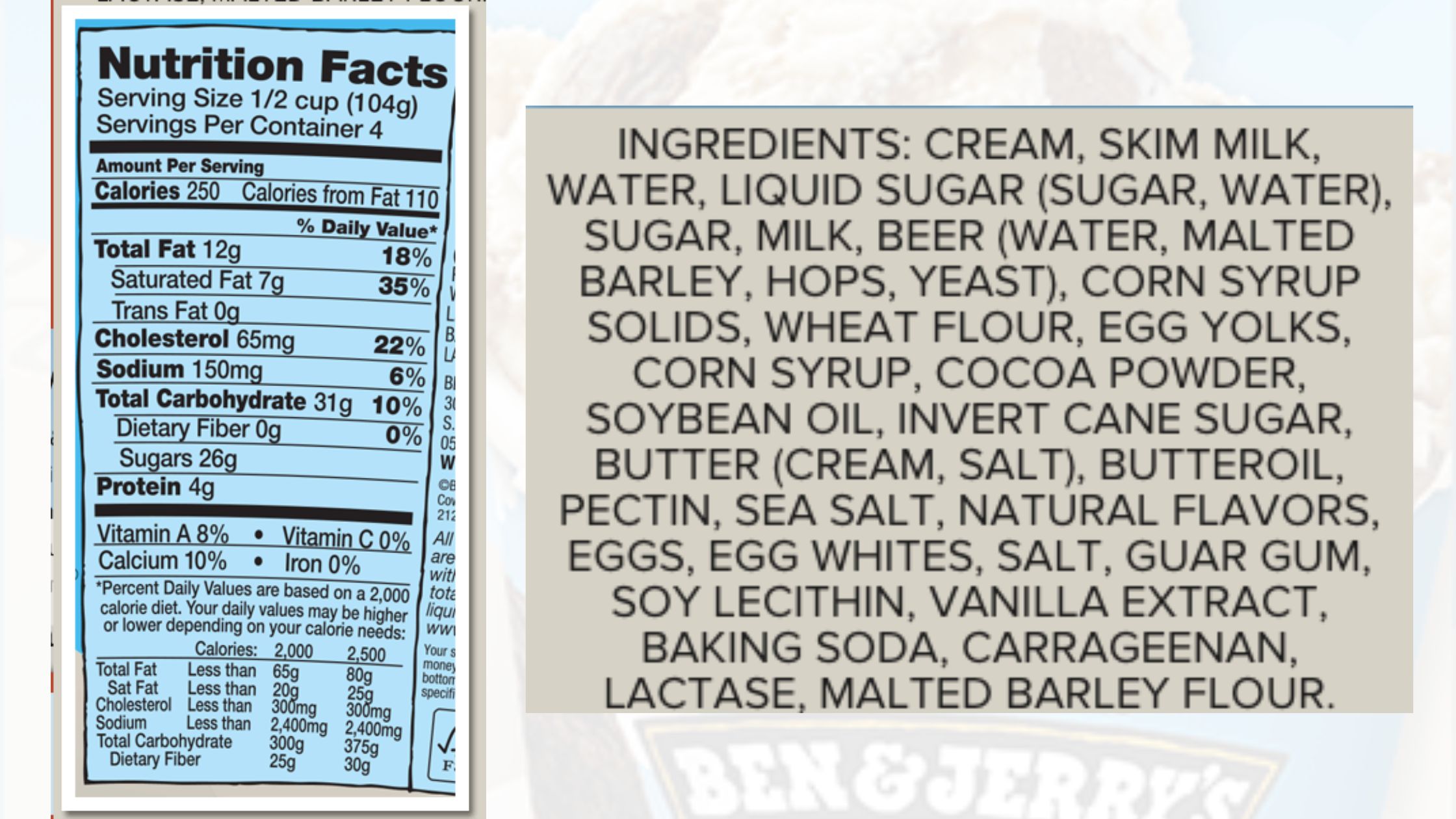Ben & Jerry's New Flavor for Climate Advocacy

Ben & Jerry's is concerned about climate change. So they've created a new flavor in partnership with New Belgium Brewing. Ice cream and beer. They're both called Salted Caramel Brown-ie (Brownie) Ale. Profits from the sales of these products will go to Protect Our Winters, a climate advocacy group in support of winter sports.
While I certainly support the idea of supporting efforts to educate people about climate change and to create positive ways to reverse it I'm not sure what beer and ice cream have to do with it. Just being honest on that point right up front.
Because these are products with a social message I imagine they'll sell pretty well. Truthfully it sounds like an interesting flavor and Ben & Jerry's is known for good ice cream. I don't drink beer so I can't speak about the ale. Ben & Jerry's has a great mission statement that supports GMO labeling, they do not use rBGH in their dairy products, and they are proponents of Fair Trade ingredients. New Belgium Brewing also believes in non-GMO sourcing for their products. All good things.
The Ingredients
So what's the one major thing that will keep me from eating this ice cream? * Carrageenan. This red seaweed has been linked with gastrointestinal inflammation, colon cancer, and it is very damaging to those with gastrointestinal disorders.
There is also a study, partially funded by the American Diabetes Association, looking at the relationship between consuming carrageenan and its impact on diabetes. Because carrageenan appears in so many products (primarily dairy, alternative dairy, and frozen confections) the amount of exposure can be significant.
Eating organic foods is no escape as carrageenan is approved for use in those foods as well. Which serves as an important reminder that just because something is organic doesn't mean it's good for you.
Many people who have bloating and digestive issues often find their symptoms significantly diminished or removed when they stop eating this ingredient. While low level inflammation and gastrointestinal distress are not always significant enough to be noticed (as opposed to conditions such as ulcerative colitis, irritable bowel syndrome, or Crohn's), when removing this ingredient from their diet for a period of time many people notice a difference. The science behind the negative impact of carrageenan is increasing.
The Cornucopia Institute has petitioned the FDA to remove carrageenan from the approved list (and is seeking input from consumers who have noticed changes to their health after eliminating carrageenan from their diet). The response of the FDA's Select Committee On GRAS Substances (SCOGS) from February of 2015 concludes, "uncertainties exist requiring that additional studies should be conducted."
There's also the matter of the "natural flavors." We don't really know what they are and there are a lot of things that can fall under that "natural" label that are less than desirable.
Surprisingly there is lactase in the ice cream. Not a negative, just interesting. This is the digestive enzyme that specifically helps to break down milk sugar. I haven't bought ice cream in a while so I haven't been looking at the label. This is something that could be a good idea to help digest the dairy products.
However please note that for those who are lactose intolerant this enzyme addition is not sufficient for them to be able to consume the ice cream without also taking some additional enzyme support. It will be fascinating to start reading ice cream labels and seeing if other manufacturers are following suit.
Conclusion
It's important to remember that no matter how good the social mission, no matter how well sourced some of the ingredients are, if there's something in a food that you can't eat, you simply shouldn't eat it. Remember to always read the label and eat well to be well.
*We're leaving out the fact that this does contain gluten (beer/malted barley, wheat flour, and malted barley flour)

